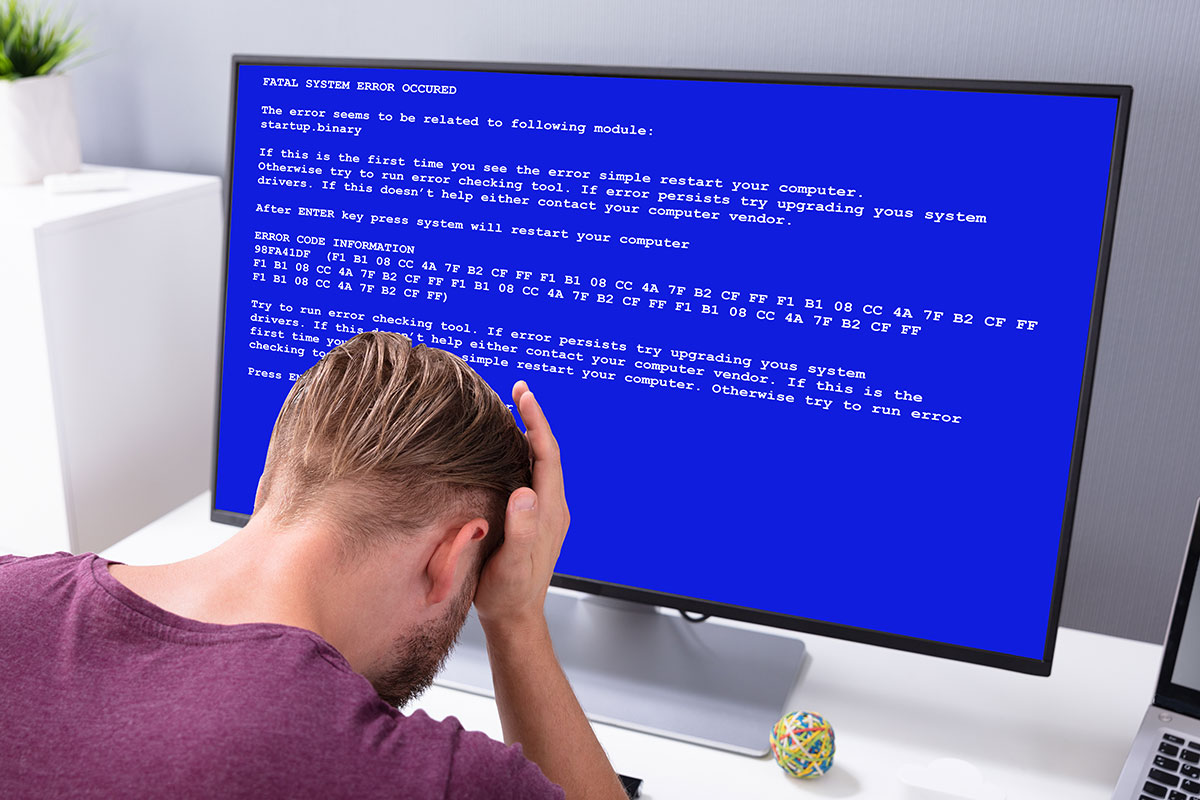As a computer user, there is truly nothing more alarming than having your computer screen suddenly flash bright blue at you before forcibly shutting down or restarting. Also known as a blue screen or blue stop error, the Blue Screen of Death (BSoD) can signal that there is an underlying issue with your computer that may need your immediate attention. While a single BSOD typically isn’t something that warrants emergency intervention, repeated blue screen errors could indicate that there is a major problem with your computer that needs to be fixed right away. Fortunately, BSoDs can often be largely prevented, sparing you from the stress of requiring immediate repairs. To help you avoid encountering a potentially harmful and frustrating BSoD, these three tips can help prevent this error from occurring on your own personal computer.
Cheap computer repair? Give us a call! 713-364-6572
Stay on Top of Your Drivers
Many people mistakenly think that driver updates are merely suggestions and may try to postpone or delay them, especially if they’re in the middle of working on a task on their computer. This could be an extremely dangerous mistake. Failure to update your drivers can trigger a BSoD, causing you to lose everything you were working on. To prevent disaster from striking, pay close attention to these update notifications and be sure to update your drivers regularly.
Scan for Malware Often
Nothing can seriously disable your computer quite like viruses or malware. These can sneak in as bloatware on software downloads, or you may accidentally get a bug on your computer by clicking on a seemingly-innocent email attachment. Scammers can be very tricky and will go to great lengths to trick you into giving up your personal information, and will try to disguise a virus in a multitude of ways. While the prevention of viruses is ideal if you suspect that you may have gotten some malware on your computer, immediately scan your computer to quickly detect and remove it.
Take Care of Your Hardware
Faulty or out-of-date hardware is one of the biggest computer issues that can lead to the BSOD. While it can be tempting to casually install new hardware onto your computer, this can backfire if you don’t take the right precautions when doing so. Always check first to ensure that the hardware in question (such as a new keyboard or hard drive) is actually compatible with your computer. After you determine that it is, you should then check to make sure its drivers are also up-to-date. By taking these extra steps before you install new hardware, you can help prevent a BSoD.
If you’re getting frequent BSoDs on your computer, and these prevention tips aren’t keeping them at bay, then you may need professional help to repair it. We here at 911 Computer are pleased to offer fast on-site computer repair to help get your computer up and running again. To learn more about how we can help fix your computer for you, please contact us today!







